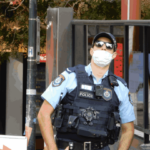Terminally Ill Given Faster Access to Medical Cannabis

A Greens motion passed through the federal Senate on Tuesday that allows terminally ill patients faster access to medicinal cannabis. Under the new provisions, patients that have a prescription are able to import up to three months of the medicine from regulated markets overseas.
Australian Greens leader Richard Di Natale moved the motion that was supported by Labor, One Nation and several crossbenchers. The motion had previously been knocked back in May, but the Greens leader used a procedural loophole to have the vote cast again.
The motion amends changes that were made to the Therapeutic Goods Administration’s (TGA) Special Access Scheme (SAS) by former health minister Susan Ley in 2016. The SAS is a formal arrangement that allows patients to import unapproved therapeutic goods into the country.
The Turnbull government removed medical marijuana from the SAS Category A, which allows patients who are dying fast-tracked access to treatments. This meant that terminally ill patients had to go through the complicated Category B process that can take up to 6 months.
Australian health minister Greg Hunt called the development “deeply concerning and disappointing,” adding that it went against the advice of the TGA and medical professionals. He also suggested that the move could lead to dangerous drugs being imported into the country by criminals.
An advocate for the patients
“It’s a victory for patients first and foremost,” said Deb Lynch, secretary of the Medical Cannabis Users Association of Australia. She added that given recent developments it’s about time. “It’s a good first step, but it still doesn’t provide for what we need.”
According to Ms Lynch, the fact that this motion was voted through the Senate is “a big indication that the Liberal medical cannabis model is a failure.” And the reaction of the health minister is a further indication that the move is in the right direction.
The Turnbull government passed legislation in February last year allowing for the legal cultivation, manufacture and distribution of medical marijuana. Businesses have been able to apply for a licence to grow the plant and produce medicine as of October last year.
A slow burning process
However, since medicinal cannabis was legalised at the federal level, “nothing has been done for the patients,” Ms Lynch explained. Her sentiments have been echoed by many medicinal cannabis advocates, who label it a slow moving process held back by excessive red tape.
The Office of Drug Control only issued the first domestic licence in mid-February, and nine licences have now been granted. Cann Group Australia – the first company to receive a licence – has just been given the green light to grow their first crop this month.
As far as Ms Lynch is concerned, the Turnbull government is “anti-cannabis” and patients are well aware of that. She believes the Liberals are so concerned about the plant and its products being used recreationally, that they’re forgetting about the suffering patients are actually going through.
Fast-tracked for the terminally ill
But as Ms Lynch made clear, the Greens motion is a victory for patients. This is especially true for the terminally ill, as they no longer have to go through the lengthy and difficult process of applying to the TGA for access.
“A doctor doesn’t need to go through any of the government application processes,” Lynch explained. They just need to advise the TGA that the terminally ill patient will “benefit from cannabis medication.” Doctors no longer need to apply for permission.
Prior to this all patients either had to go to a doctor who’s a part of the Authorised Prescriber Scheme – as of May this year there were only 25 doctors registered to do this nationwide – or a doctor needed to apply on their behalf through the SAS.
The high price of importation
The Senate motion deals with the importation of medical marijuana. However, a major hurdle that Australian patients are now facing, if they want to import the medicine from countries like Canada, are the exorbitant prices.
Lanai Carter was the first person in Queensland who was granted approval to import marijuana medicine from overseas, Ms Lynch explained. “One 3 month supply for her son cost $7,000 and she had to cash in her superannuation to do it.”
“This is still going to be out of the normal, everyday person’s reach financially” even with approval, she continued.
Medicinal cannabis producer Dr Andrew Katelaris has pointed out that a local producer can help a child for just $150 a month, while the equivalent pharmaceutical cannabis product from GW Pharmaceuticals costs around $1,500 a month.
Importing medi pot
In February, the health minister announced an interim medical marijuana importation scheme, to help fill the gap in the local market, while domestic production actually gets up and running. The first two batches of imported medicine from Canada arrived in the country in early May.
However, even though thousands of Australian patients are using medicinal cannabis, by the end of May there was imported medicine sitting around in warehouses in capital cities, as there are fewer than 150 patients that have actually been approved access to it.
Raiding local producers
The federal government has enacted laws to allow for the domestic cultivation and manufacture of medicinal cannabis, as well as allowing for it to be imported from overseas. But at the same time, authorities are cracking down on those local operations that are actually providing patients with medicine now.
One of the largest suppliers in the country, Newcastle’s Ubuntu Wellness Clinic was raided on December 1 last year. Jenny Hallam was raided by South Australian police on January 4 this year. She’s now facing up to 10 years imprisonment for providing cannabis oil to patients for free.
While NSW police raided the home of Dr Katelaris at the end of last month and charged him with drug possession. The long-time medicinal cannabis activist is currently out on bail, and will be appearing before Hornsby court on June 28.
“It’s fairly obvious they’re trying to set this up for big business,” Ms Lynch told Sydney Criminal Lawyers®. “They’re trying to wipe out anybody who’s already out there helping people.” She went on to say that patients aren’t considered in the end, because it all comes down to profit margins.
A glimmer of hope
NSW Opposition leader Luke Foley introduced a medicinal cannabis bill before state parliament on March 9. The legislation calls for the decriminalisation of possession of the medicine, as well as a lawful supply chain.
And it’s in this NSW bill that Ms Lynch believes we might see some progress. “If they write the correct regulations” so that the options are “open for patients to access everything that they need to,” then this could be the game-changer, she explained.
The bill is about to debated again in state parliament. “And if we can get that through, then the other states will have to follow suit,” she said. “It’s as simple as that.”
The sick will continue to access the medicine
Medicinal cannabis experts estimate there are around 100,000 patients using the plant products countrywide, with 1,000 dispensaries supplying them. And as one producer gets closed down by authorities, others are springing up to meet the demand of patients.
“What they’re providing is not workable for patients, so patients are just going off, and continuing on with what they’ve been doing.” Ms Lynch concluded. “This is something they won’t stop.”







